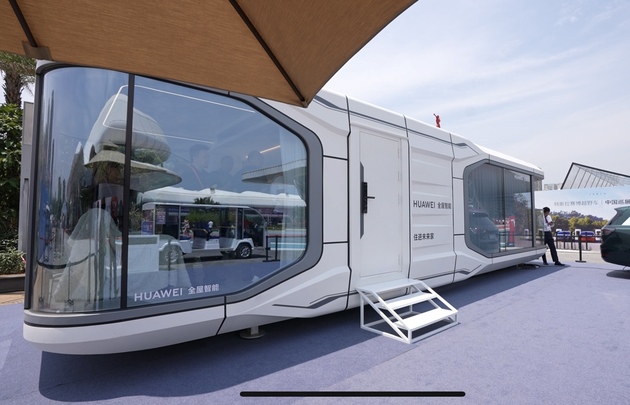
Photo/Organizing Committee of China International Consumer Products Expo
On the 14th, the second day of the China International Consumer Products Expo, Huawei and the Hainan International Economic Development Bureau co-hosted a development meeting for the smart home industry.
Press a button on the remote control, and the music in the room gradually turns on, the projection screen drops, the curtains close, and the light strip changes, switching to a relaxed entertainment mode. If you often wake up at 7 o’clock in the morning, you don’t need to press a button or voice control. When it discovers that someone gets up, the lights will turn on by themselves, the curtains will automatically open, letting the sunshine in… In this home, each mode matches the settings that the residents like.
This is a scene of a whole-house intelligent scenario that people can experience when they walk into the outdoor exhibition area of the 4th China International Consumer Products Expo (referred to as the “Consumer Expo”): a movable cabin from Huawei, equipped with some smart devices, visitors can feel the “future home” inside.

Photo/Shetuwang 501669203
The specific content of the cooperation includes the promotion and application of Huawei’s whole-house intelligent products in Hainan. In particular, Hainan will jointly create a whole-house intelligent laboratory with Huawei, promote more than 2,000 HarmonyOS ecosystem companies to settle in Hainan, and develop the Southeast Asia and “Belt and Road” markets.
"Green, low-carbon, intelligent, safe", this is the evaluation standard for "good houses" by the Ministry of Housing and Urban-Rural Development during the two sessions of the country this year.
With the advancement of new urbanization and major changes in the supply-demand relationship in the real estate market, housing has shifted from mainly solving “whether there is” to mainly solving "whether it is good", and more attention should be paid to the quality of life of “people” and focus on solving “people’s” needs.
At present, the penetration rate of smart homes in China is only 13%. Looking to the future, a trillion-scale industry track is rising.


 川公网安备 51019002001991号
川公网安备 51019002001991号





